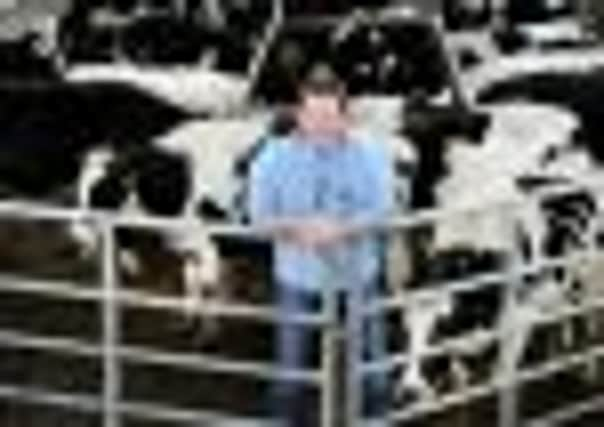Shock at hostility to farm’s slurry store


Jeremy Holmes, of Denby Dale, needed a new pit, capable of holding up to five months of wash-out from his cattle sheds, because he is in a so-called Nitrate Vulnerable Zone (NVZ), where the spreading of manure on fields is not allowed during the wettest months of the year, because of strict European controls on run-off into rivers.
But he was shaken by public opposition including threats to organise a boycott of Yummy Yorkshire ice-cream, which has become his main source of income.
Advertisement
Hide AdAdvertisement
Hide AdAnnouncing a rethink last week, he said: “We have had some very threatening emails. The situation has been very distressing for myself and my family and we have been taken aback by the strength of feeling.”
At the same time, an expert was warning there could be many more similar problems to come.
Having enforced a first round of improvements in water quality, Defra has launched a review with the intention of getting more from the beginning of 2013 – and is accused of adding together the requirements of its Nitrates Directive and those of its Silage Slurry and Agricultural Fuel Oil regulations and rounding them up into a package which is more stringent than it need be.
One proposal is to make the whole of England a Nitrate Vulnerable Zone. Another is to remove the extended deadlines for action which have so far been granted to the many farmers who have old-but-sound storage for slurry, silage and fuel, built before current construction standards came in. A new formula for calculating the ‘loose’ nitrogen content in various slurries, and an extension of the no-spreading season, are also proposed.
Advertisement
Hide AdAdvertisement
Hide AdPaul Dennison, a farm business consultant at Strutt & Parker in Northallerton, said in a circular to the farming media that all this added up to a formula for pushing a lot of farmers out of business.
He said: “Everyone needs to pay attention to this consultation.”
Laurie Norris, adviser on environmental regulations in the regional NFU office at York, confirmed there was serious concern.
She said: “Defra does have to review the legislation but is definitely gold-plating it.”
Advertisement
Hide AdAdvertisement
Hide AdThe Environment Agency normally supports a farmer’s application to meet NVZ requirements but the planning authority is not obliged to be helpful, she said. And if a farmer cannot get permission to do what is required, he has to change his business so he does not generate so much nitrogen.
David Shaw, who is in dairy at Elvington, near York, and negotiates for the NFU on NVZ issues, lobbied Defra delegates to the NFU conference in Birmingham to get these concerns across.
He said: “We have until March 16 to respond to the consultation but there is a lot to say.”
The Environment Agency said it could help farmers minimise smells if they were prepared to spend enough. Defra said: “Because of EU directives, we are required to renew the regulation surrounding NVZs every four years.”
Advertisement
Hide AdAdvertisement
Hide AdDetails of the Defra proposals and consultation can be found at http://tinyurl.com/87rvskb/
River fears sparked measures
NITRATES are compounds of nitrogen, which is a major component of fertilisers including manure, and Nitrate Vulnerable Zones are areas that drain into waters in danger of exceeding maximum EU levels for nitrate content. The danger is to the micro-organisms in the water and the wildlife, up to fish, which depend on them. The UK had to be pushed into observing the requirements, which were drawn up because of concerns arising elsewhere in Europe, where rivers drain into confined areas of sea.